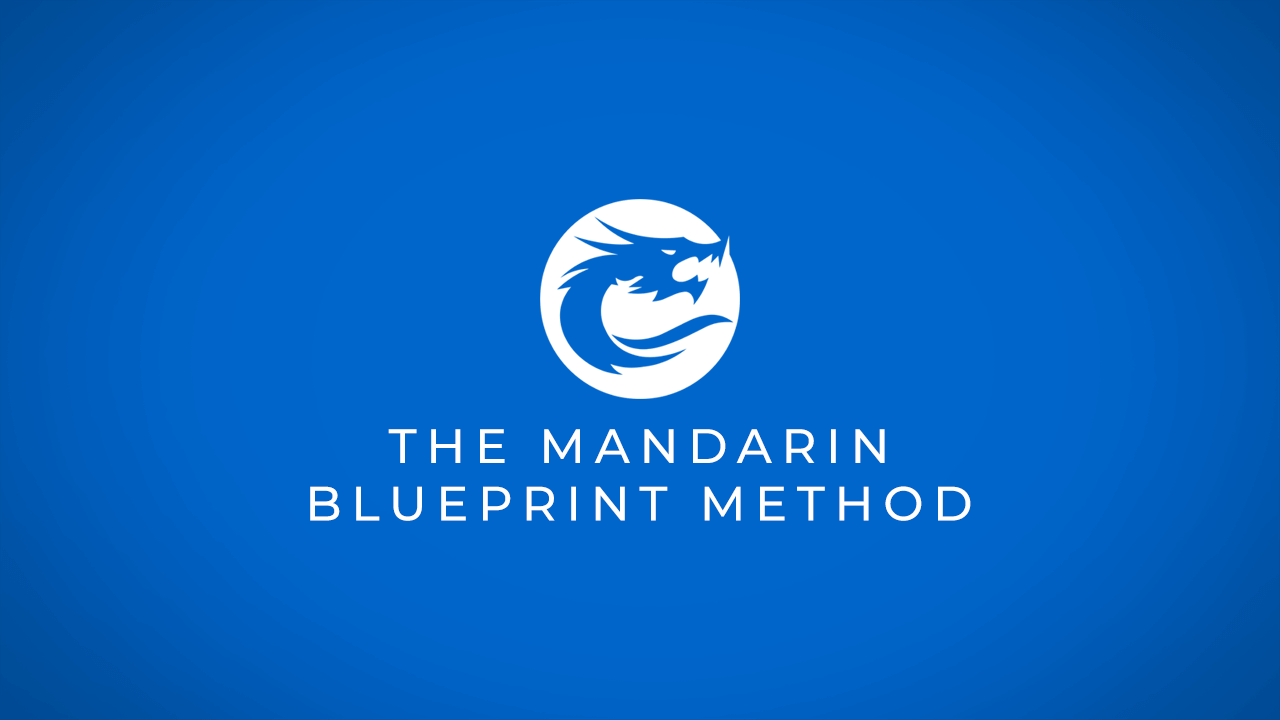Podcast: Download
Subscribe: Apple Podcasts | RSS

To explain more about the issue and the solution, Phil Crimmins from Mandarin Blueprint joins me on the Magnetic Memory Method Podcast.
Now, Phil’s credentials and experiences with Chinese are exceptional.
He’s an accomplished entrepreneur, sure. He’s also very chill thanks to meditation, mindfulness and a great understanding of how to manage his mind.
And he’s a great lifelong learner who has focused on learning Chinese with incredible speed and accuracy.
But it wasn’t always simple. And some mistakes were made along the way.
You can learn from those mistakes.
And take inspiration from how Phil went on to complete a degree at Sichuan University.
Even better, he was awarded an “Outstanding Thesis Award” for his dissertation.
What was this dissertation all about?
“Chinese Acquisition Methods from the Perspective of a Mandarin Learner.”
This means that Phil is not only great at speaking Mandarin, but writing it too!
Want To Make Reading And Writing Mandarin Easier?
In this episode of the Magnetic Memory Method podcast, you’ll learn how Mandarin Blueprint has been helping thousands of people around the world rapidly acquire Chinese language skills.
Let me tell you:
Phil and his partner Luke Neale really know their stuff.
Sure, their Chinese is great.
But I’m also incredibly impressed by their knowledge of memory techniques, including the Memory Palace and other memory hacks.
What Is Mandarin Blueprint?
Mandarin Blueprint is an online course, but it’s also something more.
It’s an experience.
See, Phil and Luke understand the brain’s need for a combination of variety, simple challenges and careful progression into more challenging aspects of the language.
Scientifically, they’re keenly aware of active recall and how to help you maximize its benefits.
It’s not just videos on a screen, either. You get quizzes, powerful downloads and activities to complete. There’s also a unique flashcard system that is built for people who use memory techniques to learn Chinese.
What about Chinese characters and pronunciation?
It’s in both of these areas that Mandarin Blueprint really shines.
As good as Phil and Luke’s pronunciation is, you also get a native speaker. It not only proves how well they speak, but gives you that all-important variety of voices that stimulates faster learning.
Memory Techniques For Chinese
So what exactly are these special mnemonics in the Mandarin Blueprint program?
That’s exactly what Phil and I discuss today, but as a bit of a preview…
Mnemonics for Chinese go back at least as far as Matteo Ricci in the 16th century. He traveled to China from Italy and even wrote a book about how he learned the language using the art of memory.
Then it’s mostly radio silence until the James Heisig books appeared with titles like, Remembering the Hanzi.
Mandarin Blueprint has taken the best ideas from the memory tradition and improved them, including some ideas from the Marilyn Method. They give interesting ways to connect your associations to both their unique flashcard system and Memory Palaces.
And these ways work, all the more so because they take pronunciation into consideration. In my experience, the Mandarin Blueprint approach is totally unique.
You should definitely try it.
What if you’re not learning Chinese?
Two things:
- Why not?
- You can still learn a ton about memory techniques by listening to Phil’s experiences using them.
After all, Mandarin is neither easy or difficult. Those matters are just a state of mind.
But there’s definitely a level of involvement with Mandarin that requires more robustness in the memory techniques you use.
And that’s what makes this conversation so valuable. Those robust approaches will transfer over to anything you want to learn!
Related Posts
- Stoic Secrets For Using Memory Techniques With Language Learning
Christopher Huff shares his Stoic secrets for using memory techniques when learning a language. You'll…
- The German Professor Who Defends Memory Techniques for Language Learning
This professor defends memorization techniques for learning foreign languages and has the science to prove…
- Memory Improvement Techniques For Kids
You're never too young to get started with memory techniques




